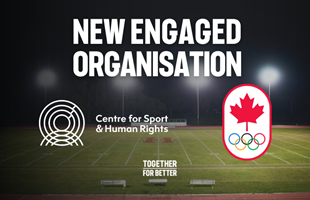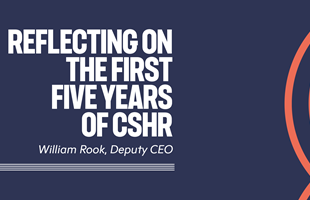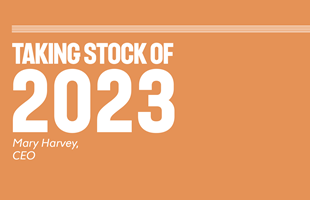2024 Increased Momentum and Expanding Efforts
11 Apr 2024
Author - David Grevemberg
The global landscape has undergone significant transformations since CSHR launched in 2018, marked by advancements and setbacks in human rights and humanitarian efforts. These changes have been driven by ongoing conflicts, disparities in access to resources, housing insecurity, disruptions in food supply chains, economic inequalities, and structural discrimination. While these issues underscore an era of uncertainty, they also highlight the resilience and adaptability of global communities.
The realm of sports, traditionally seen as a competitive domain, has evolved into a significant platform for addressing broader societal issues. Mega-sporting events such as the Olympic and Paralympic Games and FIFA World Cups have transcended their athletic purposes to become stages for social activism, discussions on human rights, and avenues for national policy reform. These events serve as a showcase for national pride and offer opportunities for host countries to reposition themselves on the global stage through sports diplomacy.
The shifting dynamics of international alliances, exemplified by formations like BRICS, are recalibrating global power structures and challenging traditional sports hegemonies. This multipolar world sees sports as a strategic field for asserting national aspirations, drawing in significant investments from private equity and sovereign wealth funds. This influx of capital underscores the growth potential of sports as a market while bringing to light the importance of ethical and inclusive governance.
Amidst these developments, the conversation around gender identity, inclusion, and intersectionality has gained prominence, challenging entrenched norms and advocating for equality and diversity in sports. This movement is not just about equal pay or representation; but also about recognising and rectifying historical injustices and systemic racism, ensuring that sports serve as a vehicle for social change and empowerment for all, including indigenous communities and marginalised groups.
CSHR’s commitment in 2024 is to harness this momentum to foster informed engagement and education on the nexus between sports and human rights. With a focus on upcoming major events in North America and continued educational efforts worldwide, CSHR aims to integrate human rights principles into the fabric of sports. This includes developing resources to navigate human rights risks, engaging stakeholders in meaningful dialogue, and promoting responsible sports sponsorship.
The introduction of CSHR’s ‘Responsible Sport Value Framework’ signifies a strategic effort to embed human rights into sports governance and management that supports a world of sport that is responsible, sustainable and impactful. Our upcoming annual state-of-play report on best practices in the sport ecosystem will represent a significant step towards transparency and accountability. Moreover, CSHR’s Advisory Services and Human Rights Volunteer programmes aim to build a community of human rights-aware institutions and individuals that advocate and evolve within the sports world, demonstrating the power of sports as a catalyst for positive social transformation during events day in and day out.
In partnership with global stakeholders, including governments and international sports bodies, CSHR is poised to extend its outreach and influence, exploring innovative approaches to make sports more inclusive, accessible, and equitable. The journey beyond our strategy Convergence 2025 envisages a sports industry that not only entertains but also champions the causes of social justice and human dignity.
In sum, while the challenges of our times are significant, the opportunities for making a meaningful impact through sports are immense. CSHR’s endeavours in 2024 reflect a balanced perspective, acknowledging the complexities of the current landscape while striving for a future where sports play a pivotal role in advancing human rights and fostering peace and global unity.



